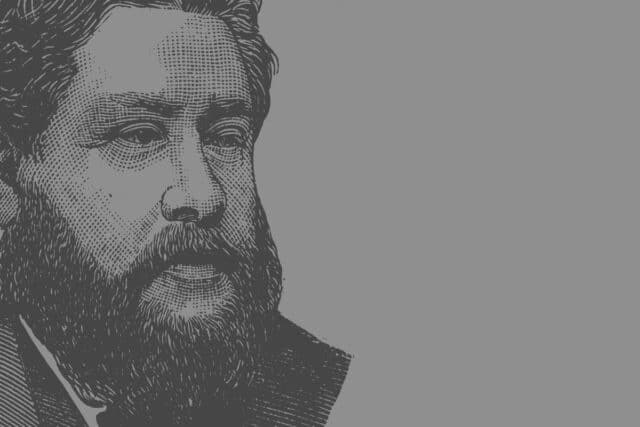Article
3 Steps to Stronger Preaching: Lessons from the Offseason
If you want to get faster on the basepaths, you train. You get back to the basics. You study the game. You bring passion to every play. The same is true in preaching.

This summer, my son Chaim finished up his 13U baseball season. He’s a catcher, a pitcher, an infielder, and a hitter who plays with all his heart—and this season was a turning point. Among the many improved stats, one thing stood out: he stole more than twice as many bases as the season before. That’s not just a coincidence. That’s measurable growth.
As the season came to a close, I asked him, “What do you think made the difference this year?”
He shrugged. Gave me a few surface-level answers. Some typical 14-year-old stuff. “I don’t know… I just tried harder.” It was honest, but incomplete.
But I knew. I had watched the offseason. I’d driven him to hitting lessons and sat on a bucket tossing balls for hours in the cage. I’d seen the plyometric drills in our home gym, the speed training, the long hours of effort he put in when no one was cheering.
He didn’t just get lucky. He got faster. He got better.
And then it hit me: I’ve seen this pattern before—in the pulpit.
The Preacher’s Offseason (That Doesn’t Exist)
Preachers are a lot like athletes in that we work in front of a crowd. But unlike baseball players, we rarely get an offseason, especially church planters. Sunday comes every seven days. And whether you’re ready or not, you’ve got to get up and deliver the Word of God with clarity, conviction, and compassion.
When we feel off—when the sermon doesn’t land or our own hearts feel flat—we tend to focus on quick fixes. We tinker. We over-edit. We question our calling. Or we double down in the wrong direction. The reality is: most preachers don’t get better just by preaching more sermons. We get better by doing the right work between the sermons.
And that’s what Chaim taught me this year.
If you want to get faster on the basepaths, you train. You get back to the basics. You study the game. You bring passion to every play. The same is true in preaching.
Here are three simple lessons I learned this baseball season that I believe every preacher needs to remember.
1. Get Back to the Basics
Chaim didn’t just show up faster this year by accident. He worked on his speed during the offseason. He did sprint drills. Plyometric box jumps. SAQ drills (Speed, Agility, Quickness). He trained his muscles to move faster and his mind to react quicker. It wasn’t glamorous, but it worked.
Preachers have basics, too.
We sometimes forget that sermon prep isn’t just reading and writing. At its core, preaching is built on three fundamental movements:
- Exegete the Text: What does the Bible say?
- Exegete the People: What do my people need?
- Preach Christ: How does Jesus meet them here?
Going back to the basics means strengthening those core muscles: biblical study, theological clarity, and gospel fluency. It means staying in the Word outside of sermon prep. It means learning to listen—to the Spirit, to your people, to God’s Word breathed into your soul. It means working your prayer muscles until they burn.
Great preaching starts with the fundamentals.
2. Watch the Film
When baseball players want to grow, they watch film. Not just of themselves—but of great players. They break down swings, analyze pitcher tendencies, and learn how others respond to pressure.
This is true for preachers, too.
Chaim didn’t get faster just because he trained—he also learned to read the game. He studied pick-off moves. He watched how pitchers held runners. He learned how to anticipate.
We need the same. But instead of MLB highlights, we need to study the craft of preaching.
- Who are the preachers that stir your affections for Jesus?
- What do they do that draws you in?
- How do they handle transitions, illustrations, or applications?
- What do they avoid that you tend to lean on?
Studying good preaching sharpens your own instincts. And watching your own preaching—painful as it may be—will expose what needs attention. Are you speaking too quickly? Too monotone? Are your eyes glued to your notes? Do you over-explain or under-apply?
Don’t just listen to your sermons—watch them. Watch the body language, the crowd response, and the rhythm. Ask trusted friends or mentors to review a message with you and give real feedback.
This isn’t vanity. It’s growth.
Great players watch the film. Great preachers do too.
3. Hustle Matters
There were moments this season when Chaim turned routine singles into doubles—and doubles into triples—just by pure hustle. He’d hit a slow grounder to third, explode out of the box like his life depended on it, and grunt his entire way down the line like his life depended on it. More than once, his intensity forced an error or bought an extra base.
I’ll be honest—it was inspiring.
There’s no stat line for passion, but you know it when you see it. It shows up in the effort between the lines.
Preaching is the same. The sermon may be sound, the exegesis accurate, the outline tight—but if there’s no fire, it falls flat. Passion isn’t performative—it’s the overflow of belief. When a preacher truly believes what they’re saying, the church knows it. They can feel it.
Don’t fake energy. But don’t coast either.
You don’t have to yell. You don’t have to cry. But you do have to care. You have to care enough to bring your whole self to the pulpit—not just your notes.
Sometimes passion is what turns a forgettable sermon into a memorable one. And sometimes it’s the difference between a crowd hearing information and receiving transformation.
Run hard through first base. Even on the infield grounders.
No One Gets Better by Accident
Your preaching won’t improve just because you preach more sermons.
That’s like assuming a kid will get faster just by playing more baseball games. Without offseason work, they reinforce bad habits and get better at being average.
But with intentionality, growth is inevitable.
So, ask yourself:
- What would an “offseason” look like for your preaching—even without a break between Sundays?
- Could you take four weeks to rework your prep rhythm?
- Could you build a team to help you spot your weak spots?
- Could you commit to watching one great sermon a week?
- Could you ask for feedback without defensiveness?
Just like Chaim, your growth won’t always be dramatic in the moment. You may not even feel it week to week. But after a season, you’ll notice: the stats don’t lie. The people will notice. And you’ll be preaching with more clarity, conviction, and joy than you were a year ago.
Final Thought
I watched my son hustle his way into extra bases, work in the shadows when no one was watching, and make big strides because of small decisions repeated over time. It made me proud. It made me hopeful.
And it made me want to preach better.
We don’t just preach because it’s our job—we preach because we believe Jesus is worth it. So, let’s bring our best not just on Sunday, but in every quiet moment between.
Because no one gets better by accident, and the church deserves preachers who keep growing.




